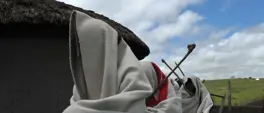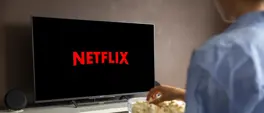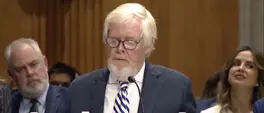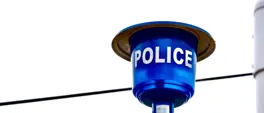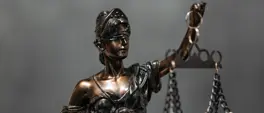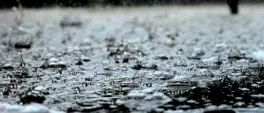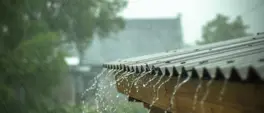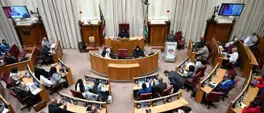ZONGILE NHLAPO: Black women on SA TV - if they’re not victims of paedophilia, their private parts are on misogyny blast
Zongile Nhlapo
9 July 2024 | 15:22There has to be a line drawn and some sense of social responsibility from TV channels and related stakeholders in how they represent Black women on television, because even if some things are not technically wrong, they are still deeply problematic, writes Zongile Nhlapo.
If you watch South African television or listen to the radio, you most likely have come across a very serious advert about the Broadcasting Complaints Commission of South Africa (BCCSA).
“Under the code of conduct, we are committed to giving programming that is not harmful to children, does not amount to hate speech or the description of gratuitous violence or explicit sex," it famously goes.
The complaints commission then encourages you to contact it should you feel that someone or something is not living up to that code.
Such was the case when last year, Moja Love was taken to the BCCSA over airing an episode of Isencane Lengane depicting gender-based violence (GBV).
In its submission, however, the channel said, “[viewers] taking offence, disgust and similar emotions” was not reason enough to have been hauled to the commission. Moja Love later won the case on appeal.
I can’t say that I was surprised then when I learnt of an episode in a recent season of the Isencane Lengane show, where viewers were subjected to some of the most disgusting, downgrading and disrespectful language I’ve ever heard on South African reality TV from the mouths of black men – premised on Black women and their private parts, women’s worth and their private parts, interspersed with men’s erections and ejaculation, and more derogatory language aimed at women, for an entire 30-minute episode.
Leading the vileness was the main character of the show, 21-year-old husband, Siyacela Dlamuka. The private parts he was complaining about were those of his 20-year-old wife, Thando Dlamuka. The pair infamously wed when they were 15 and 16 in 2019, and TV cameras have followed their lives since.
READ: The new marriage bill and 'Isencane Lengane' - because where elders err, the law must act
Notably, in Ulundi - the home of the show, which is also where I’m from, it is unacceptable and regarded as insulting to refer to a woman’s vagina with that particular isiZulu term that was not-so-bleeped out. It could be heard countless times in the duration of the episode.
A “BCCSA crime scene” is how one viewer described it on X.
“I am the one who has that private part, but even I can never use that (Zulu) word referring to it,” remarked young wife Thando in a subsequent episode, where she was asking the elderly women in the family to intervene in the foul language coming out of her husband’s mouth.
PAEDOPHILIC BEHAVIOUR
And if it’s not gross language about Black women on our TV screens, it’s paedophilic behaviour dressed up in the name of culture. Again, the subjects are Black women.
An episode of Mnakwethu aired in May in which the husband had pursued his first wife and another woman that he wanted as a second wife, while they were still minors.
A viewer on X said they'd written to the BCCSA about this particular episode.
When I asked the host of the show, Musa Mseleku about this, he said: “At the time of filming, both ladies were above 18 years as prescribed by statute,” adding: “Mnakwethu does not do the matchmaking, neither does it approach people to come on the show.”
READ: 'Mnakwethu': Preying on Black women's vulnerability for entertainment? Musa Mseleku disagrees
Unsurprisingly, about a month after that, Mzansi Magic aired another similar episode where a man, whom Mseleku in his own words called “old”, had pursued a woman he wanted to take as a second wife while she was at school. She was in Grade 12 when she appeared on the show.
“A child younger than one of his children,” remarked the first wife repeatedly.
“Taking a (young) wife is like buying an empty phone,” the 40-year-old boastfully said on camera. And went on a tangent making a very dangerous analogy about how the young girl was a blank cellphone in which he’d install every app from scratch.
Grooming 101 anyone? On our TV screens?
In the next confessional, even Mseleku had to point out that women are not objects to play with.
“It’s important that we see them as human beings; equal to us.”
But surely a little digging by the producers into the men who write on these shows and their background can provide the necessary clarity and context, so it doesn’t get to this point.
BCCSA’S TEETH
In the Isencane Lengane BCCSA case, Moja Love in its submission also said while most of the issues tackled on the show “appear offensive, insensitive and/or encourage GBV”, these issues are “a necessary part of discourse on GBV.”
The channel maintained it did not breach any of the provisions of the [BCCSA] code, and that while freedom of expression, like any other constitutional right, is not absolute, and is subject to limitations set out in Section 16(2) of the Constitution, such limitations do not include emotional reactions to episodes.
It became very clear to me then that even as a complainant may rightfully write to the BCCSA, they may easily be bound by these technicalities. Add to that the might of a channel’s legal resources.
Markedly, the BCCSA code’s language is also laden with language such as the programme must be “judged within context”, “[broadcasters must] exercise care”, “exercise particular caution”, “exceptions [to violence] if there's serious educational purpose”, “guidelines to age if there’s offensive language”, etc.
So, if 21-year-old Siyacela utters profanities and even refers to women as light-skinned dogs – which he did in another episode - as long as the episode has an age guideline, and the profanities are beeped out, and it only (or merely) causes offence but does not amount to hate speech, then everyone gets off scot-free?
The sense of protection, then, that the BCCSA gives – that of a referee, a watchdog, somewhere we can take our complaints to - appears to be limited and even compromised by the broadness of the language that can be open to many interpretations. Ultimately, it may not adequately deal with what may be dismissed as mere “disgust and offence” or an issue "appearing" insensitive in counterarguments by channels.
It seems under these technicalities, then, it would make it hard to hold anyone accountable.
THEN, WHOSE RESPONSIBILITY?
There has to be some line drawn and some sense of social responsibility on the channel, and even the platform (DStv)’s side in what they choose to broadcast. Because even if some things are not technically wrong, they can be deeply problematic.
Tell me how glorifying grown men preying on minors, giving them a platform over and over, and then hiding behind, well, it’s someone else’s fault, and oh, please note that they were of legal age when it was filmed, is okay?
Tell me how insulting and vile language about Black women aids in any “societal reflection and debate”, as has been claimed by Moja Love. What might’ve been there to reflect on post the insulting and degrading ‘private parts’ episode?
It was Malcolm X who said Black women are among the most disrespected people on the planet. And yes, Black women. Because show me which South African television show disrespects, disregards and reduces any other race except Black women?
Why are they seemingly such easy fodder for channels to shamelessly and so recklessly profit from?
In a conversation with Umsamo Institute’s Siyabonga Mkhize, he was quick to remind me that the people on these shows are adults who sign consenting forms and “can walk away at any time during filming.”
I found that point to be quite disingenuous.
As if there aren’t many social, economic and cultural factors at play with the women who appear on the shows.
For example, Siyacela (who dropped out of school) and Thando (who failed Grade 12) are both unemployed and have a small baby, and Thando confirmed in a recent episode that they do receive some money from the show. Connect the dots.
Some women who appear on Mnakwethu have said that out of “respect” for their husbands "as the head of the home", they stay and finish filming.
Add the shock factor of being falsely lured to a place by your husband until Mseleku and the cameras walk in.
And yes, some people will rightfully and validly argue that viewers are also guilty here, they feed into the high viewership of these shows. Certainly; yet there would be nothing to feed on and react to if channels didn’t provide the platform, or at least were not reckless with the content they present.
As a people, our well-documented history notes the denigration and humiliation of Black women everywhere - at the hands of patriarchy, racism, classism and various forms of exploitation - and now at the hands of the television industry to generate views.
The irony in the re-traumatisation of the same women amid all this progress we proudly laud is not lost on me.
It is clear that something is broken; that even as we have structures like the BCCSA that are our last line of defence, they can be mere scarecrows if you consider the technicalities counterargument brought by channels like Moja Love.
But we cannot allow the insulting, degrading and humiliating representation of Black women to prevail on South African television, because, with our silence, we risk giving the impression that it is okay.
Get the whole picture 💡
Take a look at the topic timeline for all related articles.
Trending News
More in Opinion

12 December 2025 15:34
CHARLES MATSEKE | The Republic of commissions arrives at its point of no return
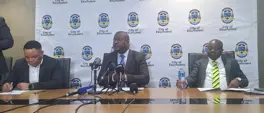
12 December 2025 14:15
REBONE TAU | Ekurhuleni needs bold, decisive leaders to reverse years of capture

12 December 2025 05:13
MANDY WIENER | Searching for a superhero with a spine of steel: Why the position of NDPP matters so much
